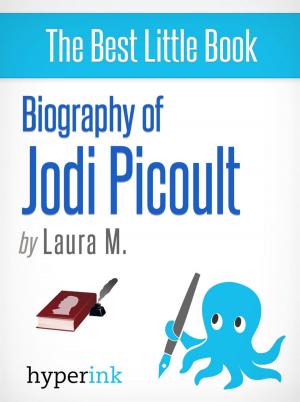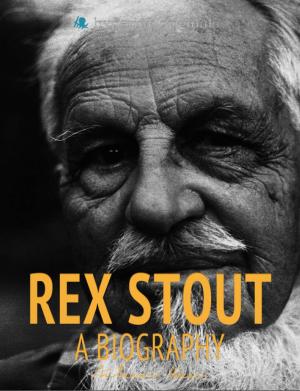Quicklet on The Picture of Dorian Gray by Oscar Wilde (CliffNotes-like Summary and Analysis)
Fiction & Literature, Literary Theory & Criticism, Reference| Author: | Lacey Kohlmoos | ISBN: | 9781614645252 |
| Publisher: | Hyperink | Publication: | July 26, 2012 |
| Imprint: | Hyperink Quicklet | Language: | English |
| Author: | Lacey Kohlmoos |
| ISBN: | 9781614645252 |
| Publisher: | Hyperink |
| Publication: | July 26, 2012 |
| Imprint: | Hyperink Quicklet |
| Language: | English |
What does it profit a man if he gain the whole world and lose his own soul?
If you could drink, smoke, and eat as much as you wanted and see no change in your appearance, would you indulge? If you could cheat, steal, and even murder without any consequences, would you do it? What would you sacrifice for eternal youth and beauty? Is your soul too much of a price to pay?
With The Picture of Dorian Gray, Oscar Wilde weaves a tale of love, betrayal, murder, and revenge that delves into all these questions and more. When Dorian sees a portrait of himself and becomes aware of his own intense youth and beauty, he proclaims that he would give anything to preserve his looks and let the portrait grow old instead. This simple wish uttered in a moment of passion changes his life forever. As the portrait grows old over time and bears the marks of Dorian’s bad habits and cruelty, his innocent and youthful face never changes. As he sets out on a mission to experience every type of pleasure that the world has to offer, he discovers that he can get away with anything. Even murder.
The Picture of Dorian Gray is Oscar Wilde’s only novel. When it was first released, its homoerotic undertones and harsh criticism of strict Victorian morality made it wildly controversial. The novel was even used as evidence against Wilde when he was tried for “gross indecency.” Today it is considered classic literature and often read in high school and college English classes. The book’s themes, as well as the author himself, continue to intrigue readers. Wilde challenges people to look at the way they live their lives and question their happiness. Are they freely pursuing happiness or constricting their personal growth by repressing their desires?
Although written over 100 years ago, the story’s intrigue still holds up and even manages to deliver quite a few shocking moments. As Dorian plunges into the grimy underworld of Victorian London, he does things that many people would condemn in public while secretly wishing that they could do the same. Perhaps this is why The Picture of Dorian Gray has been adapted into numerous movies. There is nothing sweeter than forbidden fruit.
What does it profit a man if he gain the whole world and lose his own soul?
If you could drink, smoke, and eat as much as you wanted and see no change in your appearance, would you indulge? If you could cheat, steal, and even murder without any consequences, would you do it? What would you sacrifice for eternal youth and beauty? Is your soul too much of a price to pay?
With The Picture of Dorian Gray, Oscar Wilde weaves a tale of love, betrayal, murder, and revenge that delves into all these questions and more. When Dorian sees a portrait of himself and becomes aware of his own intense youth and beauty, he proclaims that he would give anything to preserve his looks and let the portrait grow old instead. This simple wish uttered in a moment of passion changes his life forever. As the portrait grows old over time and bears the marks of Dorian’s bad habits and cruelty, his innocent and youthful face never changes. As he sets out on a mission to experience every type of pleasure that the world has to offer, he discovers that he can get away with anything. Even murder.
The Picture of Dorian Gray is Oscar Wilde’s only novel. When it was first released, its homoerotic undertones and harsh criticism of strict Victorian morality made it wildly controversial. The novel was even used as evidence against Wilde when he was tried for “gross indecency.” Today it is considered classic literature and often read in high school and college English classes. The book’s themes, as well as the author himself, continue to intrigue readers. Wilde challenges people to look at the way they live their lives and question their happiness. Are they freely pursuing happiness or constricting their personal growth by repressing their desires?
Although written over 100 years ago, the story’s intrigue still holds up and even manages to deliver quite a few shocking moments. As Dorian plunges into the grimy underworld of Victorian London, he does things that many people would condemn in public while secretly wishing that they could do the same. Perhaps this is why The Picture of Dorian Gray has been adapted into numerous movies. There is nothing sweeter than forbidden fruit.















